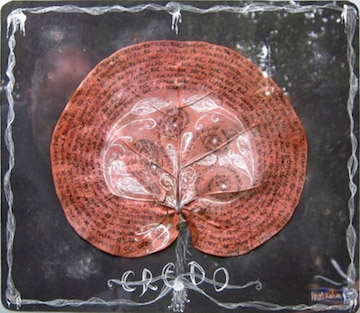Raza Rumi is a Pakistani writer, blogger and political analyst who spoke to me from Lahore, where he lives.
He is also an adherent of Sufi thought and adopted the surname “Rumi” as his nom de plume, in tribute to the great 13th century poet and mystic.
In our wide-ranging interview, Raza spoke eloquently and poignantly about his country and what it is like to be living in Pakistan these days. Through his lens we can see another Pakistan, a parallel society that has been obscured by the prevailing image of militaristic, unreliable and confusing Pakistan given to us by the mainstream media.
I have summarized some of the significant points Raza made but I do urge you to listen to him in his own compelling voice.
1. Much of Pakistan’s seemingly inextricable alliance with Afghanistan and the Taliban can be explained by its existential fear, “a genuine insecurity” of being encircled by India. Retaining its ties to the militants is one way of protecting itself from its huge eastern neighbor and as leverage ”in the endgame of Afghanistan.” (What that endgame will be is “shrouded in mystery…nobody really has a clue of how to approach and how to handle it.”)
2. The shared geography, history and culture of Khyber Pakhtunkhwa, the continuum between Pakistan and Afghanistan “makes it very difficult to separate the two.”
3. “Now you have two Talibans, the ones who attack NATO troops and the ones who attack Pakistani people.” Pakistani people want to get rid of the Taliban because their lives have been traumatized…we feel really angry and we’re also suffering… In this power politics, Afghanistan and Pakistan are burning.”
4. “These are extraordinary times”, a serious crisis as Pakistan struggles between two paths: its South Asian, more secular identity and the puritan Arab identity of Saudi Arabia’s global Islam.
5. Pakistan is a society in major transition, created by the twin trends of urbanization which has brought women into the work force and into public prominence and a dynamic youth-driven culture, profound social change growing in parallel with the incumbent jihadi presence.
6. Muslims and Islam are not a monolith, with enormous variations among Southeast, South and Central Asia, Iran, Indonesia, Saudi Arabia and Pakistan societies.
7. “This call for Sharia, for theocracy, is nothing but an attempt to capture power … vis-à-vis the West.”
8. “Help Pakistan stabilize, grow and develop rather than penalize it in a momentary game of chess being played in Afghanistan … Be a friend of the Pakistani people and of civil society instead of helping the generals.”
9. Because of the visible and tangible projects funded by China, “the perception is that China is a better friend of Pakistan than the US.”

